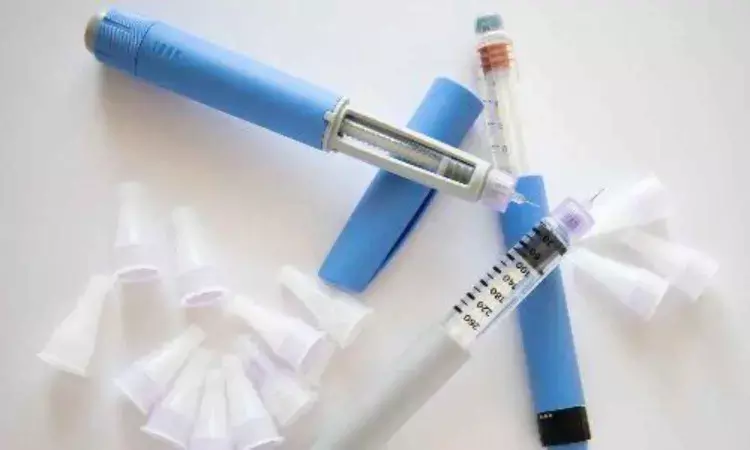- Home
- Medical news & Guidelines
- Anesthesiology
- Cardiology and CTVS
- Critical Care
- Dentistry
- Dermatology
- Diabetes and Endocrinology
- ENT
- Gastroenterology
- Medicine
- Nephrology
- Neurology
- Obstretics-Gynaecology
- Oncology
- Ophthalmology
- Orthopaedics
- Pediatrics-Neonatology
- Psychiatry
- Pulmonology
- Radiology
- Surgery
- Urology
- Laboratory Medicine
- Diet
- Nursing
- Paramedical
- Physiotherapy
- Health news
- Fact Check
- Bone Health Fact Check
- Brain Health Fact Check
- Cancer Related Fact Check
- Child Care Fact Check
- Dental and oral health fact check
- Diabetes and metabolic health fact check
- Diet and Nutrition Fact Check
- Eye and ENT Care Fact Check
- Fitness fact check
- Gut health fact check
- Heart health fact check
- Kidney health fact check
- Medical education fact check
- Men's health fact check
- Respiratory fact check
- Skin and hair care fact check
- Vaccine and Immunization fact check
- Women's health fact check
- AYUSH
- State News
- Andaman and Nicobar Islands
- Andhra Pradesh
- Arunachal Pradesh
- Assam
- Bihar
- Chandigarh
- Chattisgarh
- Dadra and Nagar Haveli
- Daman and Diu
- Delhi
- Goa
- Gujarat
- Haryana
- Himachal Pradesh
- Jammu & Kashmir
- Jharkhand
- Karnataka
- Kerala
- Ladakh
- Lakshadweep
- Madhya Pradesh
- Maharashtra
- Manipur
- Meghalaya
- Mizoram
- Nagaland
- Odisha
- Puducherry
- Punjab
- Rajasthan
- Sikkim
- Tamil Nadu
- Telangana
- Tripura
- Uttar Pradesh
- Uttrakhand
- West Bengal
- Medical Education
- Industry
GLP-1 Drugs Linked to Reduced Appetite and Altered Taste Perception: Study

A new study published in the journal of Diabetes, Obesity and Metabolism revealed that over half of individuals using semaglutide or tirzepatide experienced reduced appetite and food cravings. Increased sensitivity to sweet and salty tastes correlated with greater satiety, indicating that taste changes may signal appetite response. However, these self-reported taste changes were not linked to changes in BMI among users of GLP-1 receptor agonists.
GLP-1 receptor agonists and other incretin-based treatments have transformed the treatment of obesity and overweight by increasing satiety and decreasing appetite. Their impacts, however, go beyond metabolic control and affect behavioral and sensory elements including food choice and taste perception. This cross-sectional study looked at relationships between self-reported changes in taste perception and outcomes related to appetite in obese patients receiving dual glucose-dependent insulinotropic polypeptide (GIP)/GLP-1 RAS or glucagon-like peptide-1 receptor agonist (GLP-1 RAS) under real-world settings.
On Wegovy® (n = 217), Ozempic® (n = 148), and Mounjaro® (n = 46), 411 participants answered an online survey that evaluated sociodemographic, anthropometric, and sensory alterations as well as appetite-related outcomes. This study evaluated the relationships between flavor alterations and fullness, appetite, and seeking, using multivariable logistic regression.
The baseline body mass index (BMI) of the participants were 35.6 (Wegovy®), 34.7 (Ozempic®), and 36.2 kg/m2 (Mounjaro®), respectively. Of them, 69.6% were female, and the median age was 39 [interquartile range, IQR 33–47].
Significant decreases in BMI of 17.6% (95% CI: 15.7–19.5) for Wegovy®, 17.4% (15.0–19.8) for Ozempic®, and 15.5% (8.8–22.2) for Mounjaro® were seen when models were adjusted for baseline BMI, treatment duration, dosage, age, and sex.
58.4% of participants reported feeling less hungry (Wegovy®: 54.4%, Ozempic®: 62.1%, Mounjaro®: 56.5%), whereas 63.5% reported feeling more satiated (Wegovy®: 66.8%, Ozempic®: 58.8%, Mounjaro®: 63.1%). Furthermore, a higher sense of sweet and salty flavors was observed by 21.3% and 22.6% of respondents, respectively.
Improved perception of sweet taste was substantially linked to improved fullness (adjusted odds ratios [AOR] = 2.02; 95% CI: 1.15–4.57), decreased appetite (AOR = 1.67; 95% CI: 1.04–3.25), and decreased desire (AOR = 1.85; 95% CI: 1.05–3.29), regardless of the kind of therapy. Increased satiety was linked to a greater impression of salty taste (AOR = 2.17; 95% CI: 1.16–5.17; all p < 0.05).
Overall, this study suggest that changed taste perception following GLP-1 and combined GIP/GLP-1 RAS treatment is linked to positive appetite-related outcomes, like increased satiety and decreased food cravings in obese people.
Reference:
Kapan, A., Moser, O., Felsinger, R., Waldhoer, T., & Haider, S. (2025). Real-world insights into incretin-based therapy: Associations between changes in taste perception and appetite regulation in individuals with obesity and overweight: A cross-sectional study. Diabetes, Obesity & Metabolism, 27(9), 5008–5018. https://doi.org/10.1111/dom.16548
Neuroscience Masters graduate
Jacinthlyn Sylvia, a Neuroscience Master's graduate from Chennai has worked extensively in deciphering the neurobiology of cognition and motor control in aging. She also has spread-out exposure to Neurosurgery from her Bachelor’s. She is currently involved in active Neuro-Oncology research. She is an upcoming neuroscientist with a fiery passion for writing. Her news cover at Medical Dialogues feature recent discoveries and updates from the healthcare and biomedical research fields. She can be reached at editorial@medicaldialogues.in
Dr Kamal Kant Kohli-MBBS, DTCD- a chest specialist with more than 30 years of practice and a flair for writing clinical articles, Dr Kamal Kant Kohli joined Medical Dialogues as a Chief Editor of Medical News. Besides writing articles, as an editor, he proofreads and verifies all the medical content published on Medical Dialogues including those coming from journals, studies,medical conferences,guidelines etc. Email: drkohli@medicaldialogues.in. Contact no. 011-43720751


